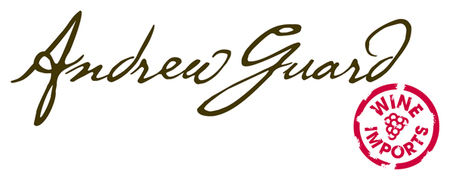Domaine de la Pépière
Muscadet Sèvre et Maine

Marc Ollivier of Domaine de la Pépière, from the appellation of Muscadet Sèvre et Maine, is one of the great vignerons of the Loire Valley. Ollivier's reputation comes from the vibrancy and density of his wines which reflect their terroir, which for most of his vineyards is granite, one of the less common terroirs for Muscadet, accounting for only 5% of the appellation. He has 28 hectares of vines; about 8 hectares lie on the granite of Clisson in the more southerly part of the appellation, another 12 hectares further north, on the granite of Château Thébaud; both of which contain veins of metamorphic gneiss with amphibolite stones.
It is noteworthy that Ollivier's vineyards are genetically rich as there are no clones in Ollivier's vineyards, which are increasingly tended using organic methods; the grapes are harvested by hand, with a pressing straight after harvest and no pellicular maceration. Fermentation occurs using only naturally occurring yeasts and no products at all to aid or adjust the vinification which is nearly exclusively in stainless steel where the wine stays until bottling, for months or up to three years as Ollivier deems necessary. The wines are then bottled with minimal addition of sulphur dioxide and the lightest of filtrations.
His basic cuvée, Domaine de la Pepière, Muscadet–Sèvre et Maine sur lie, comes from ten- to 60-year-old vines on high ground above the Maine, partly on Clisson granite, partly on Château Thébaud granite. Since 1988, Ollivier has produced an old-vines bottling called “Clos des Briords” from a small parcel on Château Thébaud granite and it has become his most famous wine. These are among the oldest vines in his estate (planted in 1930) and they enjoy a favourable exposition - the “Clos des Briords” has a much deeper top soil of clay and silica over a brittle granite subsoil: this ensures excellent drainage in wet years, and better moisture retention in dry summers. Ripening is slower, and the longer hang-time before harvest allows for optimal maturity to be reached. When young, rather than being aromatic, the wine is atmospheric, like sea air on a rocky coast in Brittany. With age it shows its greatness.
In 2005, Ollivier produced a new cuvée called “Granite de Clisson” from a small parcel of 60- to 90-year-old vines within the Pepière vineyard. He made it again in 2007, keeping the wine on the lees for 24 months. Both wines are excellent, breaking new ground for the AOC and should develop beautifully over the next 15 to 20 years.
His most recent super-cuvée is the Granite de Château Thébaud. These old vines lie close to those of Clos des Briords on a terroir where the oligatory granite is flecked with quartz and it has spent time on its lees for two years before bottling. It is another magical Muscadet that transcends its appellation. These are all captivating wines and some of the best in the Loire Valley.
